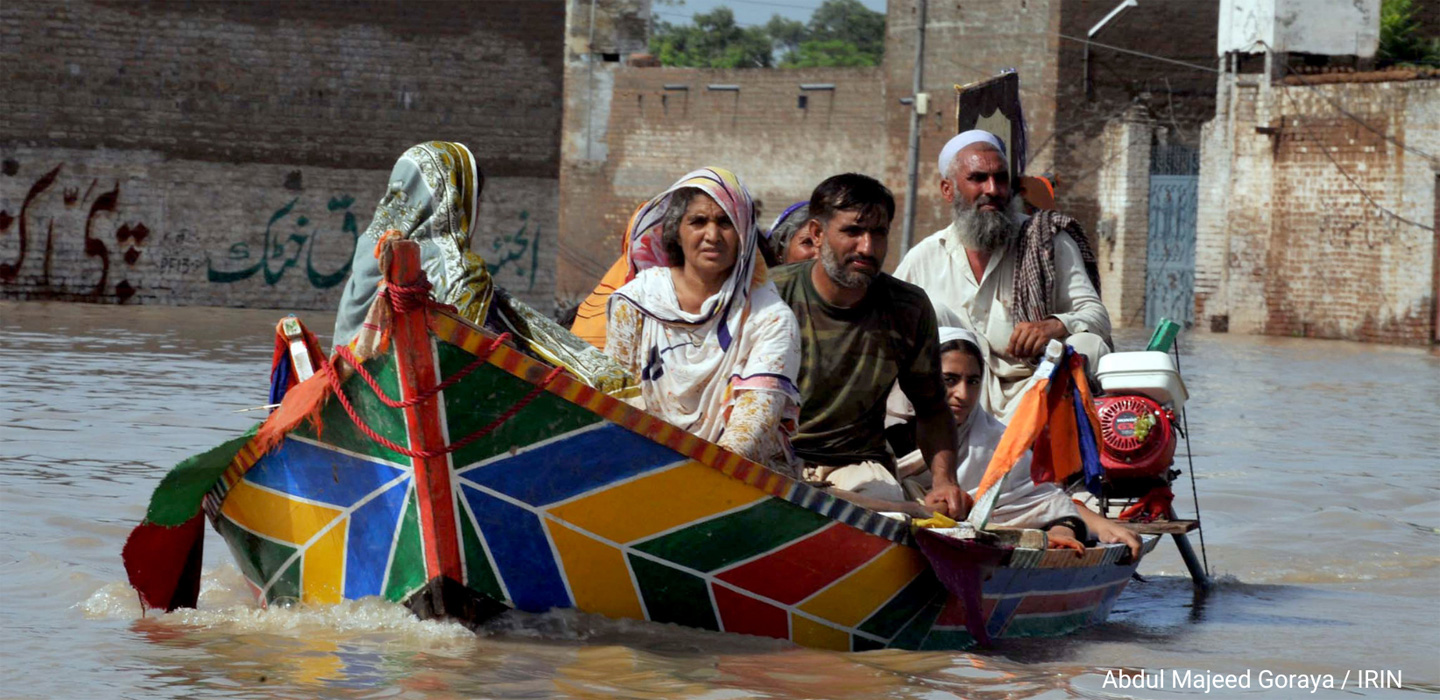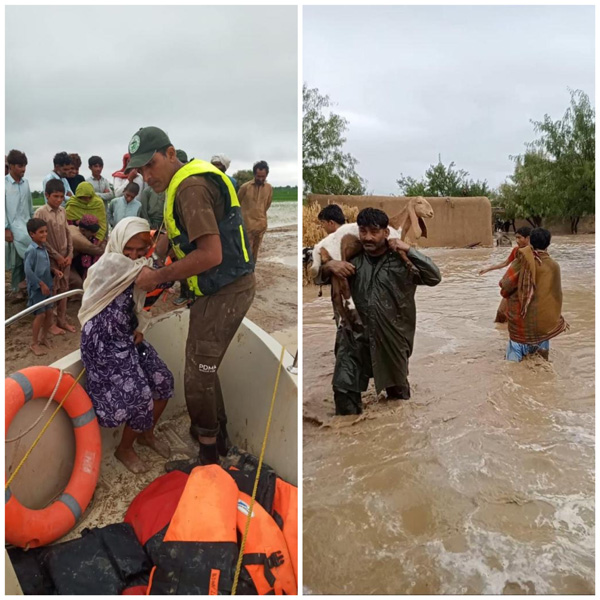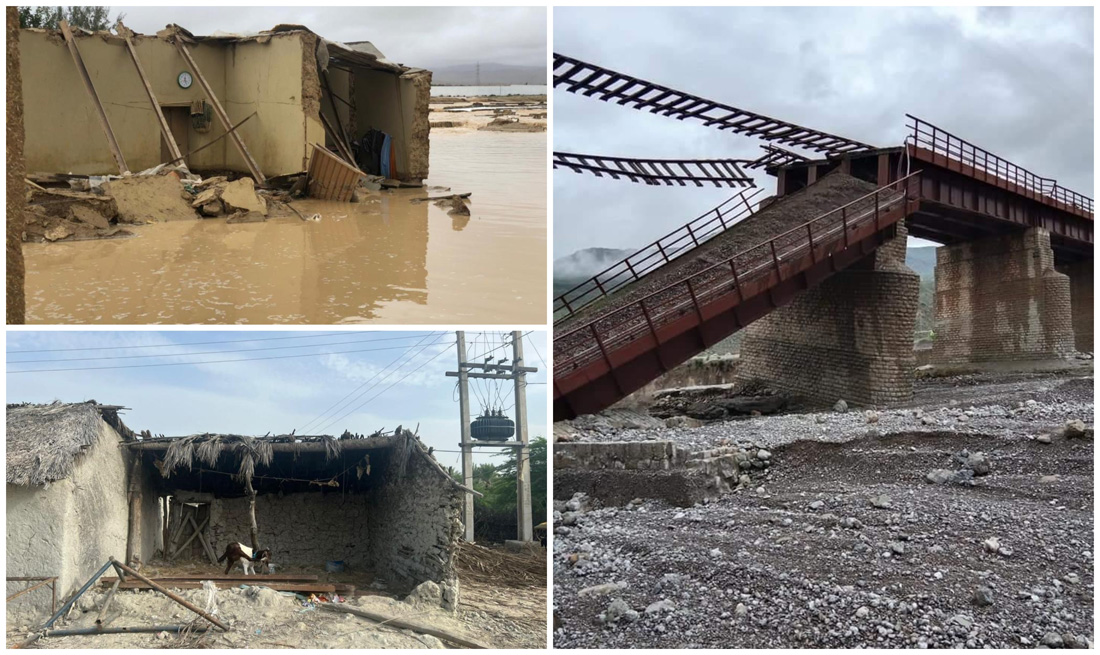IFAD’s Country Director in Pakistan reacts to the floods
IFAD Asset Request Portlet
Asset Publisher
“This is unprecedented”: IFAD’s Country Director in Pakistan reacts to the floods
Estimated reading time: 2 minutes
Following months of incessant rain, nearly one third of Pakistan is underwater. By the end of August, 33 million people have been affected by rains, floods and landslides and over 1,000 have died. According to OCHA, more than 719,000 livestock have been killed and over 809,000 hectares of crops destroyed.
As more monsoon rains are anticipated, these numbers are likely to increase. With crops, food stores and livelihoods being swept away, many now confront hunger and extreme poverty, as well as trying to cope with the direct impacts of the flooding.
 |
| People fleeing the floods in Balochistan, Pakistan. © GLLSP-II project |
Since June, Pakistan has experienced nearly three times its 30-year average rainfall. The floods follow severe and unseasonal heatwaves in the spring. Climate change is increasing monsoon rainfall, while meltwater from the glaciers in northern Pakistan are causing devastating flash floods. Throughout my career in development, I have never seen anything like it. This is unprecedented.
The poorest people in developing countries have contributed least to climate change, yet they are the worst affected by it and will struggle to recover, rebuild and adapt.
Among them are the rural communities IFAD works with in Pakistan. While we are on the ground trying to find out more, damaged infrastructure and difficulties accessing affected areas are hampering efforts, particularly in Balochistan which is Pakistan’s largest and poorest province.
Nevertheless, IFAD is ready to immediately adjust its activities to respond to the urgent needs of families affected by the floods. We will also continue our long-standing work with local rural communities, building livelihoods, food security and resilience to climate shocks.
 |
| Damage to infrastructure and buildings cause by the floods, in Balochistan, Pakistan. © GLLSP-II project |
This climate catastrophe will take years to recover from. But as the world heats up, these extreme weather events will only become more frequent. That’s why we must support the poorest rural people to adapt to this “new normal”.
How? Adopting climate change mitigation measures, transitioning to greener economies, building climate-resilient infrastructure, producing nutritious food sustainably, and ensuring poor rural people earn better incomes so that they can withstand these devastating events when they occur.
Pakistan’s floods are an urgent call to action for the world to invest in climate change adaptation. We cannot ignore this call.
Explore all our work in Pakistan.
Publication date: 31 August 2022